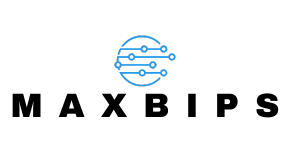Table of Contents
ToggleIn a world where coffee shops can double as offices and pajamas are considered business casual, remote jobs have become the Holy Grail for tech enthusiasts. Enter the DevOps engineer—a hybrid role that’s as vital as it is in demand. With companies racing to streamline operations and boost productivity, the need for skilled DevOps professionals has never been higher.
Overview of DevOps Engineer Remote Jobs
DevOps engineer remote jobs continue to emerge as a vital component in the tech landscape. Companies seek skilled professionals to bridge the gap between development and operations. This role emphasizes collaboration, automation, and continuous improvement, making it essential in today’s fast-paced environment.
The demand for DevOps engineers has soared, with statistics indicating a 20% growth in jobs over the next decade. Businesses recognize the need for agility in deploying software and managing infrastructure. Remote positions offer flexibility and access to a global talent pool, enabling organizations to find the right fit for their teams.
Key responsibilities for remote DevOps engineers include implementing CI/CD pipelines, managing cloud environments, and enhancing system reliability. These tasks require a solid understanding of tools like Docker, Kubernetes, and Jenkins. Collaboration with cross-functional teams also remains crucial to ensure seamless integration and delivery of software.
Salaries for DevOps engineers in remote roles vary based on experience and location. According to industry data, entry-level positions average around $80,000 annually, while experienced engineers can earn upwards of $150,000. This range highlights the lucrative nature of this career path, especially in a remote setting.
Opportunities in this field extend beyond specific industries. Many sectors, including finance, healthcare, and e-commerce, actively seek DevOps talent. Job boards feature a wide array of postings, from startups to established enterprises, enhancing the chances of finding a suitable remote role.
Prospective candidates should focus on enhancing their skills in cloud computing, scripting, and automation methodologies. Building a strong portfolio and gaining relevant certifications can further increase marketability in the competitive landscape.
Benefits of Remote Work for DevOps Engineers

Remote work offers significant advantages for DevOps engineers. It promotes increased productivity while enhancing job satisfaction.
Flexibility and Work-Life Balance
Flexibility ranks high among the benefits of remote work for DevOps engineers. Many organizations allow engineers to set their own hours, enabling them to work during peak productivity times. Control over their schedule helps balance personal and professional responsibilities. Families often appreciate the ability to attend to various commitments throughout the day. A positive impact on mental health arises when employees can adapt their work environment. Remote setups eliminate lengthy commutes, saving time and reducing stress. This improved work-life balance can lead to higher retention rates among satisfied employees.
Access to Global Opportunities
Remote positions provide DevOps engineers access to a broader job market. Candidates can apply for roles in companies across the globe without relocating. Diverse organizations require DevOps expertise to enhance their operations, creating numerous opportunities. Engineering professionals benefit from increased job options by accessing international markets. Networking opportunities expand as workers interact with professionals worldwide. Exposure to different cultures and methodologies fosters growth through collaboration and innovation. This dynamic experience enhances skills, often leading to better compensation packages.
Skills Required for DevOps Engineer Remote Jobs
DevOps engineers require a blend of technical and soft skills to thrive in remote positions. Mastery in both areas significantly enhances employability and effectiveness in various projects.
Technical Skills
Proficiency in cloud platforms like AWS, Azure, and Google Cloud is essential for managing infrastructure. Automation tools such as Terraform and Ansible streamline deployment processes. Familiarity with containerization technologies, including Docker and Kubernetes, aids in application scaling. Scripting in languages like Python and Bash supports process automation. Understanding CI/CD practices with tools like Jenkins ensures seamless integration and delivery. Knowledge of monitoring tools, such as Prometheus and Grafana, helps maintain system reliability. These technical skills are critical as companies seek agile solutions in software development.
Soft Skills
Effective communication fosters collaboration within cross-functional teams. Adaptability enables engineers to embrace new technologies and methodologies quickly. Problem-solving skills equip professionals to address unforeseen challenges swiftly. Time management aids in meeting project deadlines without compromising quality. Strong analytical skills promote data-driven decision-making in system performance assessments. A proactive attitude encourages innovation and continuous improvement in processes. Cultivating these soft skills complements technical expertise and enhances workplace dynamics, crucial in remote settings.
How to Find DevOps Engineer Remote Jobs
Finding remote jobs for DevOps engineers requires a strategic approach. With the right resources, candidates can significantly enhance their job search.
Job Boards and Websites
Use dedicated job boards tailored to tech roles for optimal results. Websites like Indeed, Glassdoor, and Stack Overflow Jobs offer a variety of remote listings specifically for DevOps positions. DevOps-specific platforms like GitHub Jobs and Remote.co streamline the search further, providing curated job postings. Company career pages also serve as valuable sources of openings. Candidates frequently access these sites to filter jobs by remote status, which expands their opportunities. Regularly checking these platforms ensures they remain aware of the latest postings.
Networking and Community Involvement
Participating in industry events and forums increases visibility in the job market. Networking on platforms like LinkedIn allows DevOps engineers to connect with peers and hiring managers. Engaging in local meetups and online communities fosters relationships that can lead to job referrals. Involvement in platforms like DevOps Days or Meetup.com ensures exposure to the broader DevOps community. Building a strong professional network significantly enhances job prospects. Additionally, sharing knowledge through blogs or social media showcases expertise and attracts potential employers.
Tips for Succeeding as a Remote DevOps Engineer
Effective communication remains a cornerstone of success in remote work environments. Engaging clearly with team members facilitates collaboration, enhancing project outcomes. Prioritizing regular check-ins and updates helps maintain visibility and keeps everyone aligned.
Time management plays a crucial role in productivity for remote DevOps engineers. Setting specific work hours establishes a routine that separates professional and personal life, promoting balance. Utilizing tools like Trello or Asana enables smooth task tracking and deadline management.
Building a strong technical skill set is essential for thriving in this field. Mastering platforms such as AWS, Azure, and Google Cloud opens doors to multiple opportunities. Proficiency in automation tools like Terraform and Ansible enhances efficiency in system deployments and management.
Continuous learning and upskilling should be a priority in this rapidly evolving industry. Obtaining certifications from recognized organizations boosts credibility and expertise. Participating in online courses can provide valuable insights into new technologies and methodologies.
Networking within the tech community remains a beneficial practice. Connecting with professionals on platforms like LinkedIn facilitates knowledge sharing and potential job leads. Engaging with forums or attending virtual industry events fosters relationships that can lead to collaborative opportunities.
Adapting to changing circumstances is paramount for remote workers. Being open to new tools and processes encourages innovation and improvement. Staying up-to-date with industry trends enhances strategic thinking and problem-solving skills.
Finally, maintaining a healthy work-life balance can significantly impact job satisfaction. Taking breaks and unplugging after work hours supports mental well-being. Remembering to engage in hobbies or activities rejuvenates focus and motivation, leading to better overall performance.
The landscape of remote DevOps engineer jobs is thriving and presents numerous opportunities for skilled professionals. With the demand for these roles continuing to rise companies are recognizing the value of flexibility and access to a global talent pool.
As remote work becomes the norm engineers can expect to enjoy greater work-life balance while contributing to critical projects across various industries. By honing both technical and soft skills individuals can position themselves for success in this competitive field.
Embracing continuous learning and networking will further enhance their prospects making the journey toward a fulfilling remote career in DevOps both achievable and rewarding.










